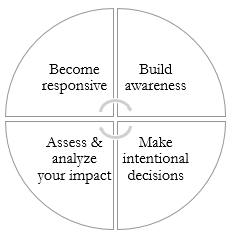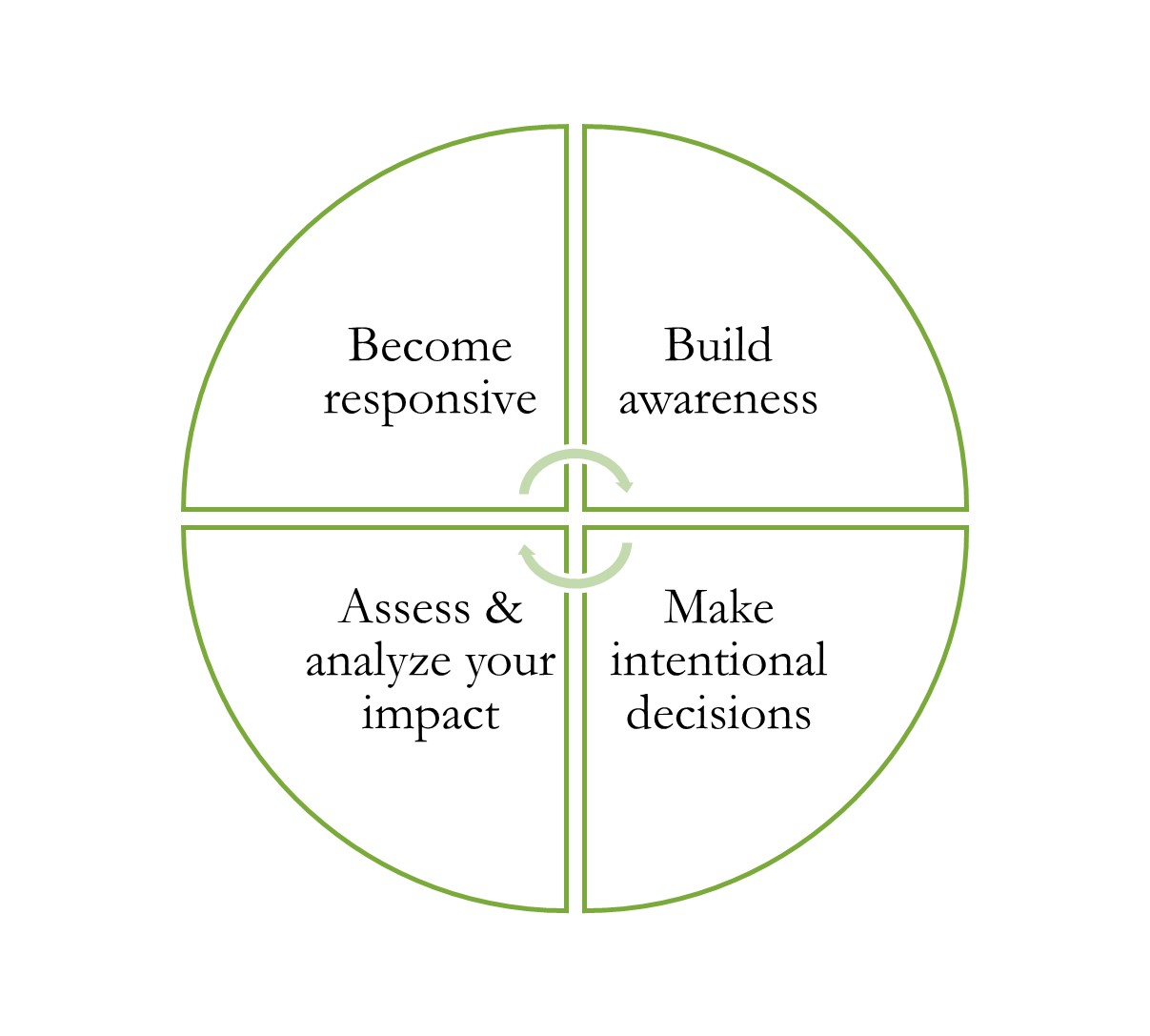
9 things you can do to strengthen your team

Here’s a question I’m often asked by senior leadership: “How do I get my team to operate more efficiently and effectively?”
If that sounds familiar, you’re not alone.
At the risk of making it sound simple, my answer is this: “First, make sure the team is doing the right things; and second, help each individual contribute to making the team stronger.”
We know that we’ll be more successful if we work as a team. This isn’t earth-shattering news, so I won’t belabor the point. Unfortunately, all the pithy quotes and clever adages like I shared in the video above won’t help us become a high-functioning team, though. For that, we need clarity of the attributes of successful teams – and there are literally hundreds of similar lists out there guiding us. The one I’ve found quite useful in supporting effective teams has three characteristics:
Attribute #1: Successful teams work toward a common goal.
Attribute #2: Successful teams practice mutual and reciprocal accountability.
Attribute #3: Successful teams engage in open, frequent, critical communication.
Next, we need to add a heavy dose of the special sauce: Each member of the team must engage with, commit to, and revel in behaviors that strengthen and fortify the team itself. How do we do this? For each of the three attributes, I’ll suggest a couple individual behaviors you can employ to ensure your team is high-functioning and effective in reaching its targets.
Attribute #1: Successful teams work toward a common goal.
What can I do to help?
1. You can start by embracing the goal, publicly and emphatically. (If we back up half a step, it would be swell if everyone within the team played a role in identifying and establishing the goal beforehand; if not, you can still commit to it – with your mind, body, and spirit in tow.) Sometimes we’re assigned a project and we’re not 100% on board with the identified outcome. If that’s the case, politely recuse yourself (if you can) or get on board. Once you’re in, you’re in, and the goal of the team has become your goal. So say it out loud: “Okay, this is our team’s goal. Let’s do it!”
2. Remind yourself (and your teammates) of the goal frequently. All too often, teams set a goal and then simply get to work. Then the work takes priority, not the intended outcome. You can help by reiterating the goal during team planning sessions, conference calls, even water-cooler chats. If it helps, suggest it idly, as if you’re reminding yourself, with language like, “Oh yeah, we’re aiming to hit these growth targets this quarter. So it makes sense that we try this strategy…”
Each member of the team must engage with, commit to, and revel in behaviors that strengthen and fortify the team itself.
Attribute #2: Successful teams practice mutual and reciprocal accountability.
What can I do to help?
3. Speak the language of “we.” It might seem uncomfortable at first, if it’s not typically the way you talk; that’s okay, keep at it. Use phrasing like “We need to buckle down and get this summary written,” “We had a couple ideas shared at our last meeting, can we revisit them?” and “We’re making progress on our goal, team!” The more we speak with the plural “we,” the more we’re including the whole team in our discussion, questions, plans, and ideas.
4. Ask a teammate to serve as your accountability partner. It’s all fine and dandy to say that everyone holds everyone else accountable for their work products, their attitude, their adherence to team norms, and the reality is this: unless each individual is willing and open to it, that simply becomes a great idea that turns to sand. So when you approach a teammate and say, “Hey, I need to get this draft finished by 2:00, and I’d love it if you would check on me a couple times this morning to make sure I’m staying focused,” it’s amazing how that opens the door to truly reciprocal accountability.
5. Celebrate your teammates’ accomplishments publicly. There’s nothing better than a third-party compliment (e.g., “Did you see how Janelle handled that tricky sale? I’m impressed with her integrity!”) or a rooftop compliment (e.g., “Before we get started, team, I’d just like to take a second to recognize Devon on his relentlessness on the Barker contract. My friend, you never gave up and it paid off!”) to make it a norm that we are on the lookout for opportunities to sing each other’s praises.
6. Address incongruencies individually. On the other hand, when things go sideways, it’s best to approach your colleagues 1-on-1, saying something like, “Whoa, Michelle, that didn’t quite work out, did it? Want to process it and brainstorm together?” Taking the opportunity to confront issues away from the spotlight, to calibrate understanding together, and to offer support can go a long way toward building trust and helping the team jell.
Attribute #3: Successful teams engage in open, frequent, critical communication.
What can I do to help?
7. Ask for help. Or advice. Or guidance. Or a suggestion. Or for feedback. Just ask! When you put yourself out there, it demonstrates vulnerability, confidence, and openness. These are the foundations of trusting, supportive relationships. Rather than wait for those relationships to magically appear, or hope that someone else begins the process, you can decide to get it started. Prepare your questions and ask!
8. Share information that may be valuable to the team. In many organizations, knowledge is power, and the person who collects information often believes hoarding it equals a prominent spot at the table, an ace card up the sleeve…you get the gist. That’s only true if the person isn’t really on a team, and each person is fighting for their own reputation, promotion, or favorable standing. On a team, the best thing we can do is share. Something like “Hey Juan, I just got off the phone with the manager of the marketing department, and here’s what they’re thinking for Q3” might steer Juan’s next efforts for the team in better alignment.
9. Check in on your teammates often. Ask them, “How are you doing?” And when they respond with the glib “Fine, thanks,” follow up with either, “No, for real,” or “I’m glad to hear it, because I’m feeling a little overwhelmed with the deadline and I was wondering if you’re feeling the same pressure.” When we’re honest with our feelings, that can open a connection to strengthening the relationship. That, in turn, can allow us to talk more honestly and productively about our work, our common goal, and the dynamics within the team that are either helping or hindering our progress.
As you’ve read this, you’re probably struck by a red thread weaving its way through all the suggested behaviors. If you have, it’s surely not a surprise: Teams win or lose based on the strength of their internal relationships. It doesn’t matter if you’re the boss, a team leader, or a member of the team without a particular defined title or role. When you’re on a team, the team matters more than any of its individuals. With strong relationships, our teams can survive just about anything.
And when each of us intentionally takes steps to align our behaviors and attitudes with the best interests of the team, our teams – and our products – thrive.
Pete Hall is the President/CEO of Strive Success Solutions. You can reach him via email at Pete@StriveSS.com.
Stay Up To Date
Stay up to date with the latest news updates and blog posts
Share Article
Share this post with your network and friends





Recent Comments